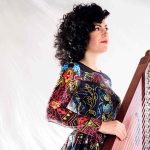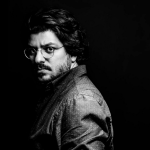Hani Al Allaf, founder of Mashrou Wanabqa, discusses his efforts in bringing together Syrians and rethinking Syria within the world. Qisetna catches up with him to trace his journey from frustrated refugee to community builder.
To begin with, Hani, please take us through what Mashrou Wanaqba is.
Mashrou Wanaqba is a social media community that launched in 2017 which fulfils a wide variety of needs for the Syrian community. Initially it was founded because I was frustrated by the manner in which Western media portrayed Syria and Syrians, however it has evolved ever since.
We are a virtual community where all types of Syrians feel welcomed and are represented. It’s a very inclusive community placing importance on religious, ethnic, and social diversity, as well as mental health challenges and queer representation. Mashrou Wanabqa has become a platform filled with sources of information, connection and communal engagement all in one.

It’s unique because it addresses many issues in a way that other Syrian pages haven’t. Syrian society has been very polarised for a very long time because of the challenges that we’ve been through as a country. Our page doesn’t ignore these challenges by being falsely optimistic but often looks at the historic causes of some of these issues and tries to educate Syrians. By looking at social issues and histories, we represent Syria online.
What inspired you to create this virtual community, and how has it changed since you first launched it?
I initially felt very frustrated by the questions I would get from people about being Syrian in Canada — the assumptions and statements I often heard were shocking and sometimes hurtful. I was extremely homesick, and at one point, I felt that I hated being Syrian. I felt dehumanised because of the word “refugee,” and so when I saw other people sharing similar stories, I wanted to amplify them.
Storytelling is such an important part of Syrian culture, so I facilitated the digitization of it by creating the platform. People submitted their stories, experiences, and memories to be shared. For four years, I worked on the page by myself and eventually developed an archive that was extremely personal. As I transitioned to include educational content, the page became my full-time job. Juggling the page with university led to burnout and my passion for the page’s continuity led me to start looking for a team.
You mentioned you now have a large team. How do you work together to distil traditional stories and narratives into social media blurbs?
We’re now a team of 28 Syrians based in 12 countries, working in sub-teams to produce different types of content. Graphic designers, content creators, and translators are all creating an impact on how our posts are delivered.
We are very careful in the way we present our information, so we’re not showing our audience just blurbs of text. Images and graphics are important in maintaining interest. Topics and titles are carefully planned to captivate and facilitate engagement. As a team, we always collectively discuss the format of our posts and their presentation. We’re very flexible in our presentations and never know what to expect from our audience!
We also keep our comment section open, fostering dialogue and a sense of community. The comments are crucial in replicating the oral storytelling traditions we have while creating opportunities for our audience to comfortably express themselves, when most Syrians have learnt not to. With a diverse audience — Syrians around the world (including in Syria), as well as thousands of non Syrians following our page — the comments section allows us to connect.

Speaking of Syrians in the country, how do you ensure Mashrou Wanaqba is accessible, especially in the face of electricity shortages and restricted Internet access?
Around 30% of our followers are currently in Syria. We have some content that is curated specifically for the diaspora, while some is curated for those in Syria. We are a strictly bilingual page, which is important in reaching as many Syrians as possible.
In some cases, consulting with our team members in Syria is very important in understanding challenges in real-time, so that we can adapt. For example, we’ve learned that accessing Zoom calls requires a virtual private network, so we are currently looking for alternative services for our Dardasheh sessions, wherein we discuss mental health issues specific to being displaced or in conflict.
The team in Syria also helps us put together information about the country for the diaspora. In terms of electricity cuts, the Syria-based team did a series of posts describing them and the challenges that accompany them that were extremely well-received by our audience. They also help us understand what could be politically polarising or problematic, I credit them for helping us navigate our way to avoid any issues.

Can you tell us a little bit more about your Dardasheh sessions? I’m curious as to how they’re facilitated and whether they’ve been received well by your following.
There are various different types of mental health issues that Syrians are struggling with. In many households, they are not addressed. There’s a sense of stigma attached, which we’re trying to break with the Dardasheh sessions.
Dardasheh essentially means having a conversation or catching up. They’re biweekly virtual calls, wherein we have a psychosocial specialist facilitating a conversation. She’s a Syrian in France who specialises in the psychological impact that immigration can have — whether that be finding ways to stay connected to your home culture, assimilating in a new country, etc.
They’ve been extremely well-received, and we often have the same people joining multiple sessions! This definitely makes the space feel more intimate, and it feels like everyone from the Mashrou Wanabqa community can trust one another.
Finally, what do you hope that people take away from everything that Mashrou Wanaqba does?
Syria is an extremely diverse society, but many people are unaware of the true depths of this diversity. I’d like to see a transition from tolerating diversity to a sense of co-existence. Right now, many Syrians are merely tolerant of “the other”— tolerance implies a sense of hierarchy, a judgement that one way of being is better than the other. Co-existence, on the other hand, is the sharing of space without judgement and without hatred. Through our work, I hope that people are learning more about each other, their common roots, and about their shared humanity.
🌿
Interview by Vedika Mandapati




